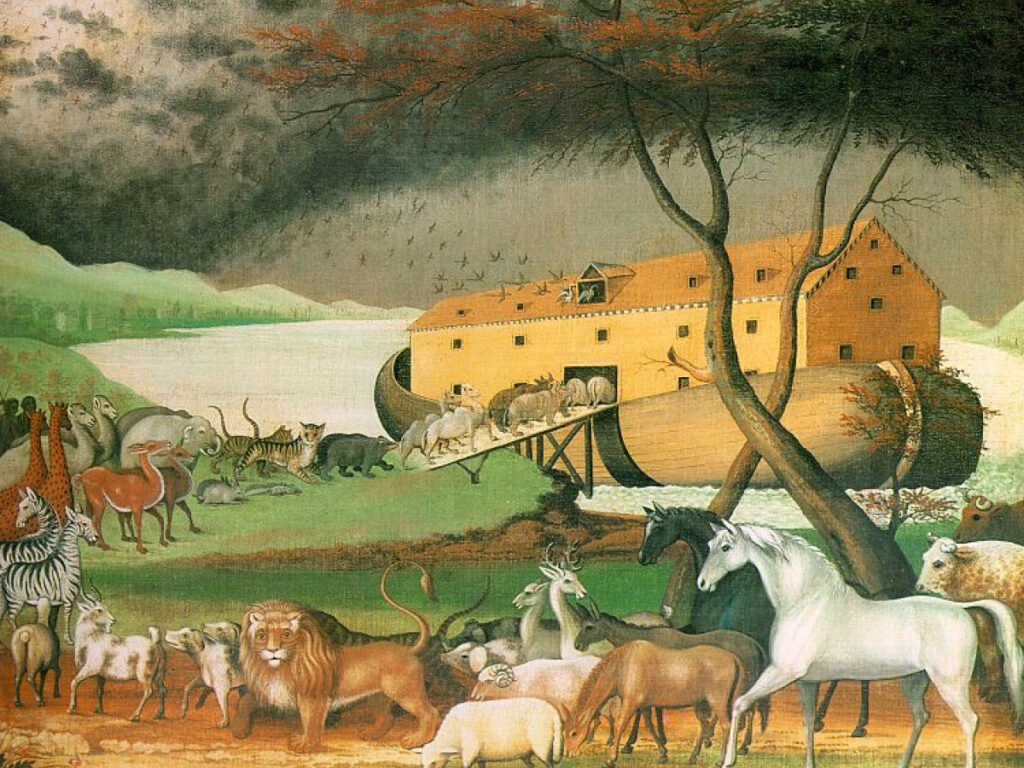“And of every living thing of all flesh, you shall bring two of every sort into the ark to keep them alive with you. They shall be male and female. Of the birds according to their kinds, and of the animals according to their kinds, of every creeping thing of the ground, according to its kind, two of every sort shall come in to you to keep them alive. Also take with you every sort of food that is eaten, and store it up. It shall serve as food for you and for them.”
Genesis 6:19-22

Few passages within the narrative of Genesis 6 have garnered more attention and scrutiny that verses 19-21, as God provides instruction on how to preserve the animals upon the ark “to keep them alive with you. They shall be male and female.” There has been much written in various other publications about the particularities of the Hebrew language in this passage, along with an understanding of the historical context of Linneaus’ modern classification system and the understanding of antiquity’s interpretation of the meaning of “kinds” or “sorts”.
To summarize a Biblical perspective, kinds would be the equivalent of Linneaus’ description of the “genus” level of classification. This is the level where we define canine (dog), feline (cat), equine (horse), bovine (cow), porcine (pig), and so on. Lupine (wolf) would be a sub-genus of the canine genus. Animals within the various genus groups are able to reproduce with one another, but not across genus groups, contrary to modern evolutionary logic. As such this is in keeping with the original mandate from Genesis 1 where God instructed animals and plants to reproduce “after their kind.”
Additionally, it was unnecessary for Noah to bring 2 of every species, nor would he need to bring the adults of every genus. All he would need to do is bring a male and female infant/adolescent of the genus – something small enough to be brought on board so that the genus would survive. Species have gone extinct since the dawn of creation, but the core genus groups have all remained secured in creation.
Additionally, with the built in rooms on the ark, God instructed Noah to store food – for himself and his family, and for the animals as well. For the sake of convenience and prolonged shelf life, it was likely grain that could be easily stored and fed to the animals, but also made into bread for the humans, along with an assortment of vegetables as God had not yet given man permission to eat meat at this time. That allowance will not come for another year or so (depending on how you calculate time in the context of chapter seven to come.
However, what becomes so easily missed in our rush to debate the timeline or the reality of a global flood (a belief that I hold to and will provide detail in the next study) vs a regional flood or the capacity of the ark or any other thing we humans want to argue about is this: “Noah did this; he did all that God commanded him.”
It was the faithfulness and trust of Noah in the word of God that motivated him to obedience. And this comes not from a single command, but rather a lifetime of intentionally seeking an intimate relationship with Him (Genesis 6:9). When we invest our time and heart in seeking the face of God, in pursuing His will, obedience comes naturally. Notice I didn’t say pursuing His will “for our lives”. When we make the pursuit of God’s will about us, we miss the entire point of His will.
As demonstrated in this brief interlude, the pursuit of the will of God leads to the propagation of the salvation of the world. That is the summation of the will of God – to draw all people to Him in humble worship and fellowship with Him and with one another. And one day, the world will be consumed again – not by a flood of water, but by fire. And God will once again preserve those in whom He has found favor – the faithful who seek after Him diligently.
Make no mistake, our salvation is completely and totally “a gift from God, not of works lest any man will boast.” (Ephesians 2:8-9). But salvation that does not inspire repentance and a faithful pursuit of His will is impotent. It’s not salvation if it is not transformational. Salvation is not about “getting your fire insurance.” It’s about receiving the assurance of the love of the Father and His favor in spite of our circumstances and in spite of how undeserving we are of His grace and mercy.
If you would like to have this same assurance of the love of God, and understand what it means to receive His favor, please reach out to us and let’s have a conversation.